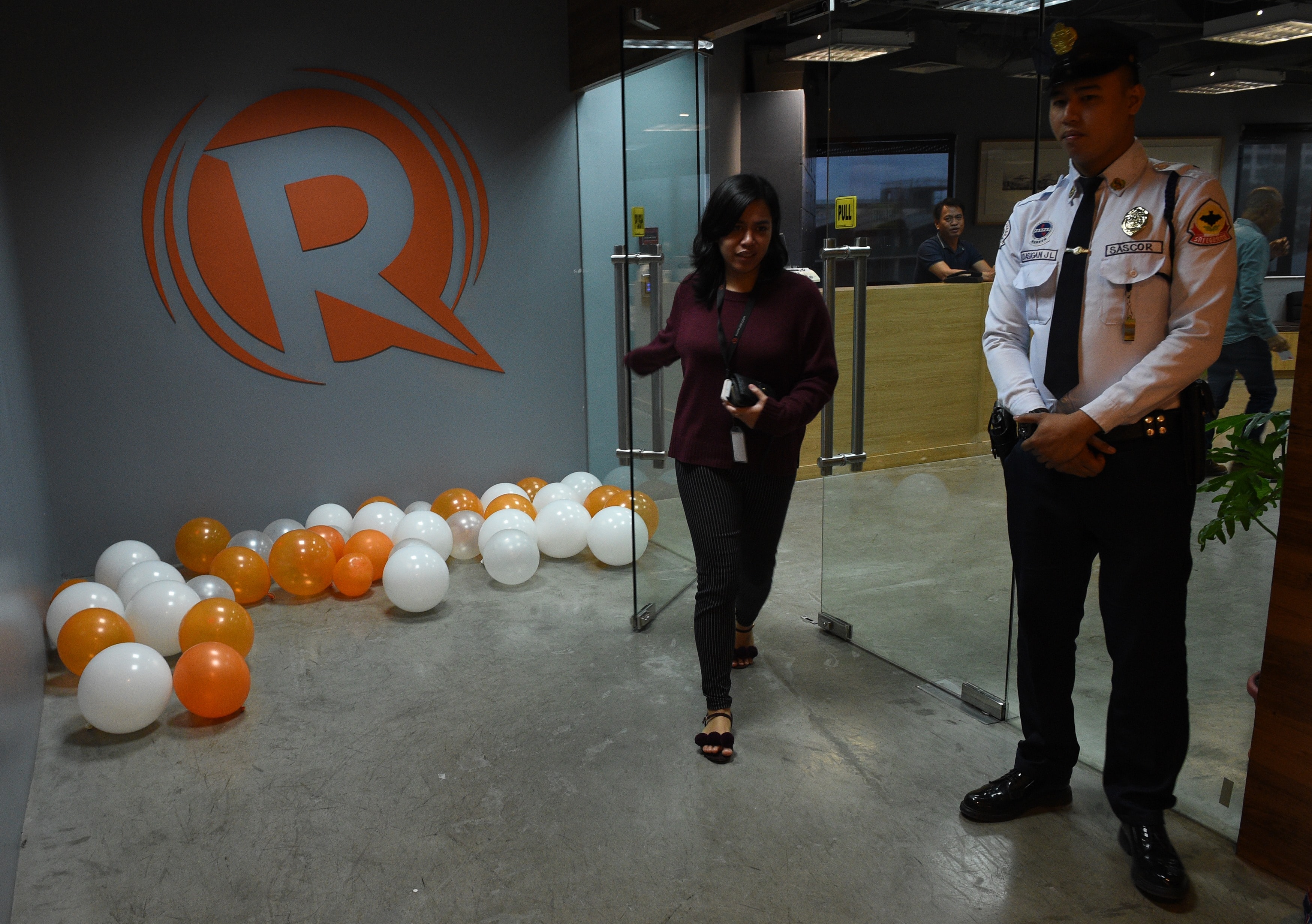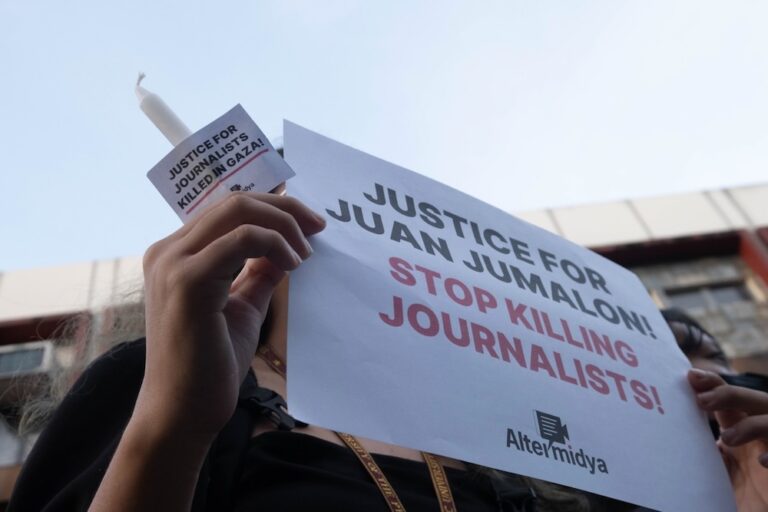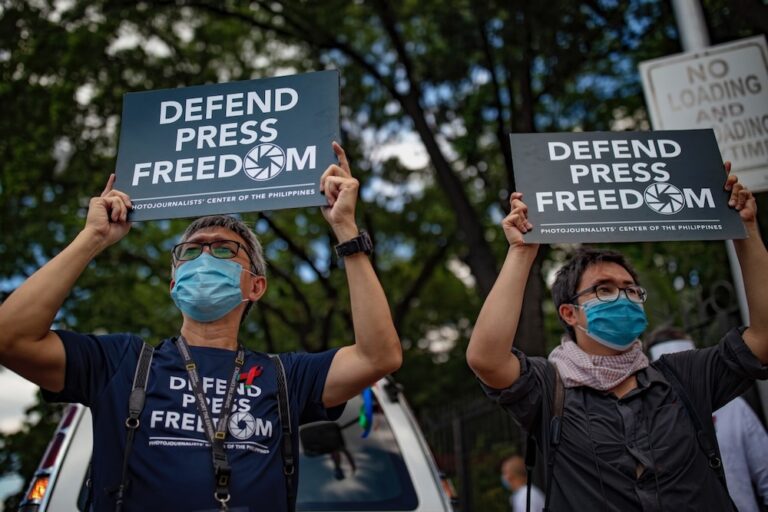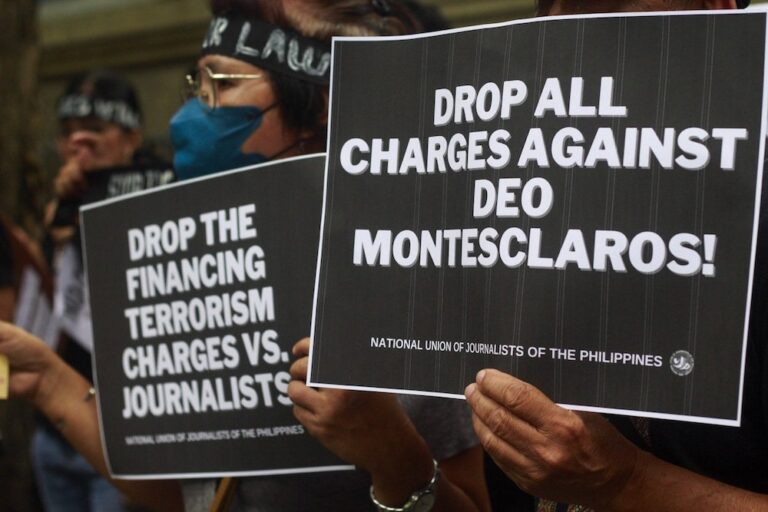On the same day the Filipino government celebrated the country's "robust" press freedom, the license of Rappler news group was revoked over "foreign ownership" allegations, months after President Duterte made similar claims during a speech.
The Philippine Securities and Exchange Commission (SEC) has revoked the license of online news group Rappler for allegedly violating the country’s laws restricting foreign ownership of the mass media.
The SEC said Rappler received funding from the Omidyar Network which violated constitutional provisions banning foreign control of the media. However, Rappler asserted that investors have no role in the management and editorial board of the company.
But Rappler’s bigger problem is not the SEC, but President Rodrigo Duterte — who accused the news group of being “foreign-owned” in July of 2017. It was Duterte’s speech that prompted an investigation into the SEC papers of Rappler.
Duterte’s tirade against Rappler is ironic considering that his government is pursuing constitutional reforms that would allow foreign ownership and control of the media.
Rappler, which has been critical of the government, described the SEC ruling as a “kill order” and denounced the actions of the Duterte government as “pure and simple harassment.”
Rappler is not alone in raising the alarm against this unprecedented move to undermine press freedom in the Philippines.
The Center for Media Freedom & Responsibility reminded the public that Rappler’s case should concern not only journalists, but all Filipinos, because “what is at stake is the loss of truth telling, of press freedom and democracy itself.”
The Southeast Asian Press Alliance criticized the rush in issuing an order to close down Rappler. “We find ill-will in the SEC order because of its immediate recommendation to close Rappler instead of allowing the organization to address these ownership issues first.”
The Foreign Correspondents Association of the Philippines said that “an assault against journalists is an assault against democracy.”
This is a terrible blow to #pressfreedom not only in the Philippines but anywhere when a tyrannical government can shut down a critical media outlet. https://t.co/vMFJcoENMM @rapplerdotcom
— MEAA (@withMEAA) January 16, 2018
Fight to protect #pressfreedom https://t.co/03NpqaKYsl
— Globe International (@globeinternat) January 16, 2018
Phelim Kine of Human Rights Watch warned about the chilling effect of the SEC ruling. “If Duterte succeeds in silencing Rappler, it will have a profound chilling effect on Philippine media freedom, encouraging self-censorship by reporters and media outlets fearful of government reprisals for critical reporting at a time when the watchdog role of a free press is more urgently needed than ever.”
Indeed, the role of media has been very crucial in exposing the human rights abuses committed by state forces under the Duterte administration. Journalists have also been consistently reporting about the impact of martial law in Mindanao and the persecution of the judiciary and members of the political opposition.
David Kaye, UN Special Rapporteur on freedom of opinion & expression, named Rappler as one of these critical voices:
in the #Philippines @rapplerdotcom is an essential source of independent & critical journalism. the govt has been trying to shut it down. #SupportRappler https://t.co/9Le8VZUDGy
— David Kaye (@davidakaye) January 15, 2018
The Committee to Protect Journalists emphasized the need to protect civil liberties. “We urge Philippine authorities to back off from this effort to close an independent news outlet, and to respect the guarantee of press freedom enshrined in the Philippines constitution’s Bill of Rights.”
Many found it absurd that the government issued a statement celebrating the ‘robust’ press freedom in the country on the same day when Rappler was ordered to cease operations.
Rappler assured its readers that it will not back down in the fight for truth and democracy.
“We intend to not only contest this through all legal processes available to us, but also to fight for our freedom to do journalism and for your right to be heard through an independent platform like Rappler.”
What is at stake is the loss of truth telling, of press freedom and democracy itself.– The Center for Media Freedom & Responsibility



